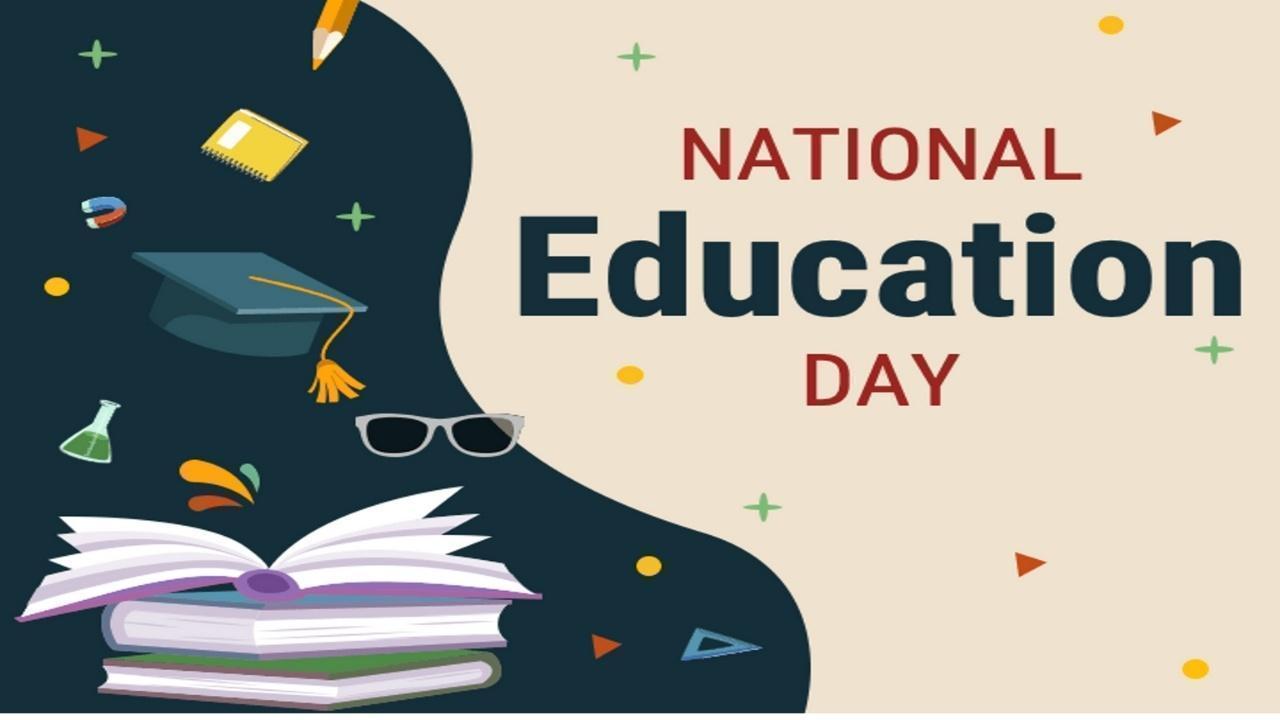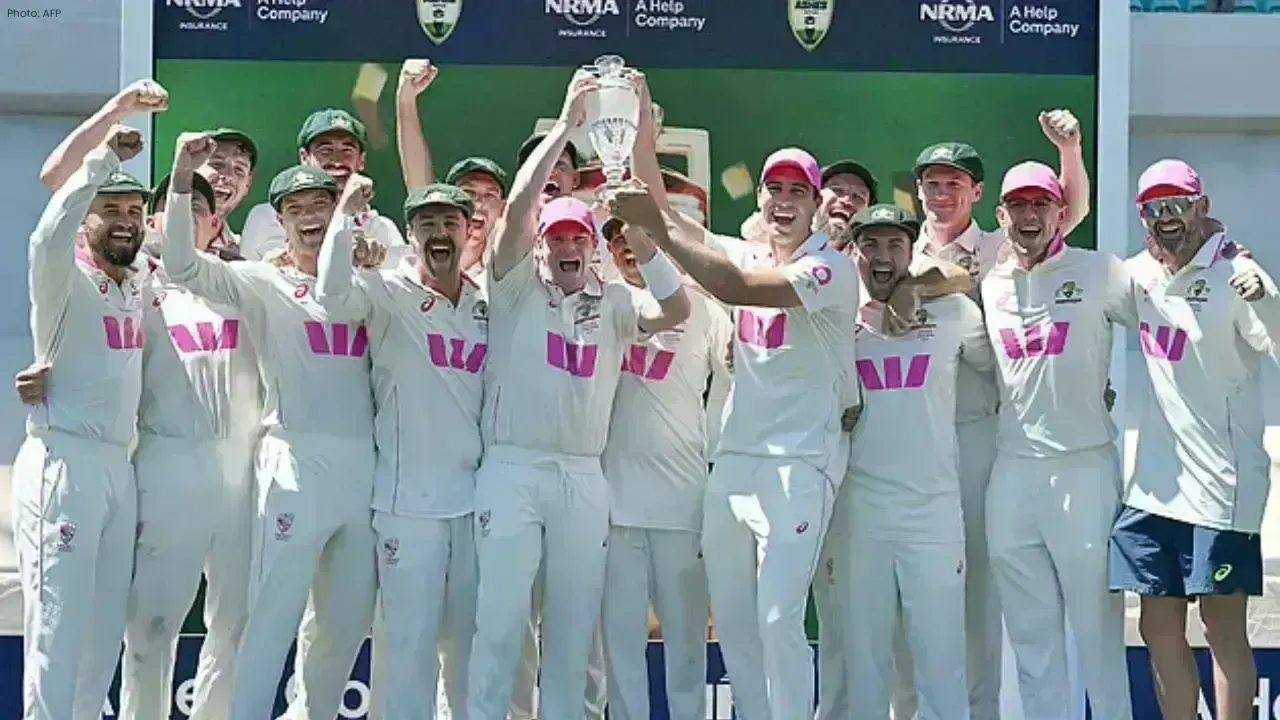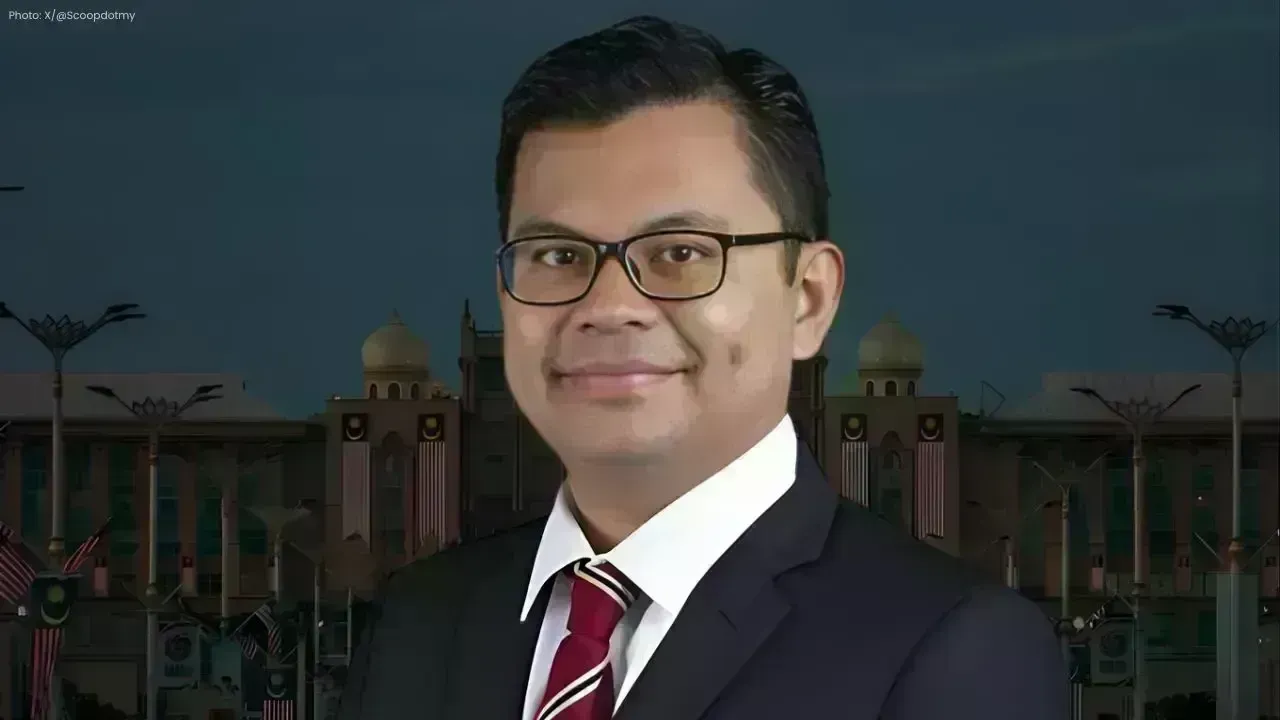You have not yet added any article to your bookmarks!

Join 10k+ people to get notified about new posts, news and tips.
Do not worry we don't spam!

Post by : Anis Farhan
Each year on November 11, India observes National Education Day, highlighting the nation's commitment to knowledge and growth through education. This day marks the birth anniversary of Maulana Abul Kalam Azad, the first Minister of Education in independent India, who viewed education as a moral cornerstone of civilization.
Azad's forward-thinking approach defined education as a transformative tool beyond traditional classrooms. He championed universal primary education, emphasized the importance of girl’s education, and advocated for modern universities. His contributions have greatly influenced the structure of contemporary education in India.
Today, National Education Day serves as both a tribute and a chance for self-reflection. It recognizes achievements while also recognizing ongoing challenges like digital access and skill gaps. As India aims to establish itself as a global knowledge leader, the significance of this day grows.
A scholar, philosopher, and freedom fighter, Maulana Azad was pivotal in shaping India's educational landscape.
He believed:
Education should be a fundamental right for all
Scientific thinking is essential for societal progress
Literacy is intertwined with values and civic responsibilities
Education must prioritize women and marginalized groups
During his tenure, Maulana Azad enacted foundational educational reforms:
Expanded vision for universal education
Established the University Grants Commission (UGC)
Bolstered the Indian Institutes of Technology (IITs) and central universities
Promoted science and technical education
Supported cultural institutions and libraries
His vision established that nation-building fundamentally begins with education, empowering the youth of the country.
India's cultural, linguistic, and economic diversity positions education as a bridge for equality and social mobility.
In a rapidly evolving world, National Education Day emphasizes the necessity of cultivating skills that foster innovation, research, and entrepreneurship.
Education should inspire civic responsibility and respect for diversity, molding compassionate leaders for tomorrow.
Emerging from a foundation with scarce resources, India has developed a rich educational infrastructure, enhancing both schools and higher education institutions nationwide.
From traditional classrooms to innovative educational technology, Indian education is evolving, integrating practical experiences like internships and project-based learning.
Digital platforms and AI-driven tools are effectively democratizing education access, particularly in rural areas.
Modern education values not just academic success but also essential life skills, including creativity and emotional intelligence.
Committed efforts are underway to ensure equitable education for all learners:
Initiatives for girls' education
Scholarship programs for disadvantaged students
Learning opportunities for special needs students
Including regional languages in education
With industries demanding a diverse skill set, educators are adapting curricula to foster practical abilities like coding and design.
India is fostering a culture of inquiry and innovation through student-led research initiatives and national innovation programs.
Teachers play a crucial role in shaping not only academic prowess but also values and aspirations in students.
Modern educators are increasingly utilizing digital tools and pedagogical advancements to engage students effectively.
Continuous training ensures that teachers remain proficient in contemporary teaching methods and tools.
Innovative classrooms promote interactive learning experiences, urging students to debate and collaborate.
Adaptive technologies cater to individual student needs, ensuring tailored learning experiences.
Campus innovation hubs inspire students to develop products and tackle real-world challenges.
While urban areas embrace digital advancements rapidly, rural institutions are still facing connectivity challenges. National Education Day underscores the necessity of equal technology access.
Creating digital educational content in local languages enhances accessibility and cultural preservation.
Disparities in resources and educational quality between urban and rural settings present ongoing challenges.
Students encounter immense pressure from academic expectations, necessitating a balance between academic achievement and mental well-being.
The rapid changes in industry demand constant evolution of academic curricula to meet workforce needs.
On this day, educational institutions engage in:
Conducting seminars and debates
Organizing essay and quiz competitions
Paying tribute to Maulana Azad
Encouraging interactions between teachers and students
Hosting book fairs and reading activities
Offering skill workshops and innovation displays
Such events foster dialogue surrounding ambitions and necessary reforms in the educational landscape.
The outlook demands robust integration of technology, innovative curricula, and policy support to ensure equitable quality in learning.
With strong educational institutions and a tech-savvy youth demographic, India aspires to be a leader in knowledge on the global stage.
In an ever-changing digital landscape, principles of empathy, ethical understanding, and inclusivity must remain at the forefront, just as envisioned by Azad.
National Education Day transcends mere commemoration; it symbolizes India's educational progress, honors Azad's remarkable legacy, and invites a collective commitment to enhancing learning for future generations.
Education is a catalyst for change, empowering communities and paving the way for an enlightened society. As India forges ahead in the global arena, it is imperative to cultivate an education that is inclusive, skill-oriented, and rich in values.
Honoring our past, nurturing the present, and steering towards a knowledge-driven future define the essence of National Education Day.
This article aims to educate and raise awareness about National Education Day and the progressive evolution of India's educational framework.










Gold Prices Slide as Strong Dollar and Futures Selling Weigh
Gold prices dipped as investors adjusted positions ahead of a commodity index reshuffle, while a str

Yash’s Toxic to Clash with Ranveer’s Dhurandhar 2 on March 19 Release
Yash’s Toxic and Ranveer Singh’s Dhurandhar 2 will battle at the box office on March 19, promising a

Australia Wins Final Ashes Test, Clinches Series 4-1; Khawaja Retires
Australia won the final Ashes Test by 5 wickets, sealing a 4-1 series win. Usman Khawaja retired aft

Malaysia Declares 2026 as ‘Year of Execution’ for 13MP Rollout
Malaysia’s Economy Minister says 2026 will focus on execution, ensuring 13MP policies turn into real

Trump Unveils New Tariffs on Iraq, Brazil and the Philippines
Donald Trump issues new tariff letters to eight countries, imposing duties up to 50 percent, citing

Heavy Clashes in Aleppo Between Syrian Forces and Kurdish Fighters
Fighting erupted in Aleppo for a second day, displacing thousands and leaving at least four dead as